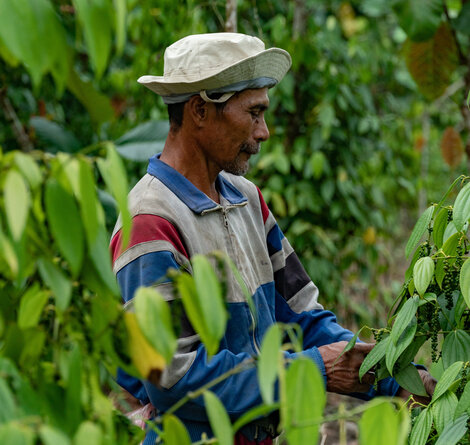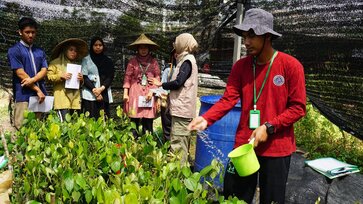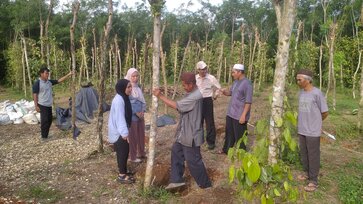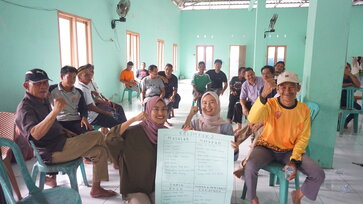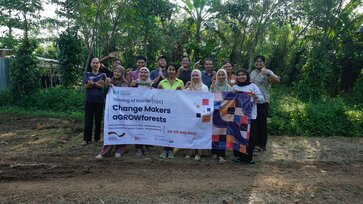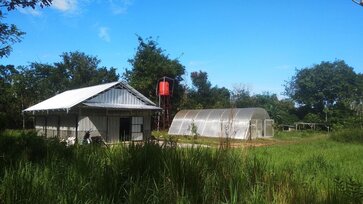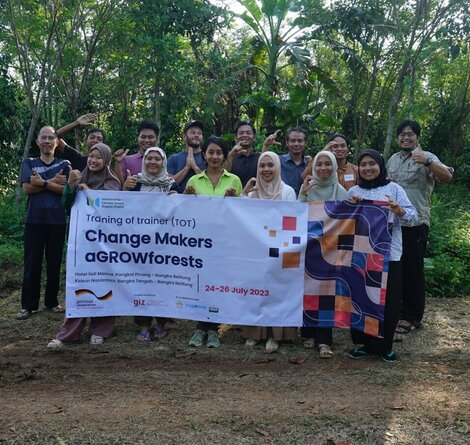aGROWforests for Sustainable Spices in Indonesia
Project description
Food production is closely interconnected with the climate – and thus also with the escalating climate crisis. On one hand, the production of our food places a significant burden on the climate. A central example is the deforestation of forests to make way for plantations. These areas are often dominated by monocultures – that is, agricultural zones characterized by the cultivation of only a single crop species. This leads to a drastic decline in biodiversity.
On the other hand, small-scale farmers are already directly affected by the consequences of the climate crisis. Prolonged droughts, heavy rainfall, and rising temperatures are taking their toll and promoting the spread of pests and diseases, further threatening agricultural yields.
Agroforestry can be a game-changer for those farmers, as it allows them to plant trees and larger shrubs between regular crops, providing protection against extreme weather conditions. Moreover, the planted trees help to absorb CO2 from the air. But there is more: agroforestry can improve farmers’ livelihoods with income diversification, e.g. new crops from the shade trees and shrubs. Moreover, it can support local biodiversity, making it a win for both the environment and farmers.
In a new partnership, Verstegen Spices & Sauces, Fairfood, PT CAN and PT Klumbayan Gold Farm, together with Indonesian pepper farmers, are working on the adoption of agroforestry. Locally, a team was built of so-called change makers, who received agroforestry training and are now spreading the knowledge to the farmers. A demo plot, on which agroforestry has been practiced for a few years now, shows what’s possible, and what impact can be expected. The 3-year project targets 2.750 farmers (of which 30% women, 15% youth) in the provinces Bangka Belitung and Lampung in Indonesia.
This project aims to make the pepper plantations way less heavy on the climate, while also becoming more resilient to an already changing climate and to provide better livelihoods for farmers and their families.
Partners
- Verstegen
Verstegen is a major player in the food sector founded in 1886. The family-owned company sells quality spices and sauces to every segment of the food sector: industry, foodservice, fresh distribution, retail and consumer market. Verstegen is primarily a Dutch company in the EU and a representative office in Indonesia. Besides Indonesia, Verstegen works together with organisations in India, Costa Rica, Guatemala, and Brasil on improving sustainability in the supply chain. - PT CAN
The Indonesian company PT CAN provides spices for B2B markets. Established in 2011 in Bandung, Indonesia, the company’s goal is to develop economic, social and environmental added-value sustainability of spices. PT CAN has a commitment to product traceability, community developments, and research in sustainable farming technology. - Fairfood
The non-governmental organisation (NGO) Fairfood is based in the Netherlands since 2000. Its mission is to accelerate the change towards fair and sustainable food value chains. The organisation works with agri-food companies along value chains to develop innovative business models that benefit companies and cooperatives and enable fair value distribution models that lead to higher incomes for smallholder farmers. The NGO's global operations span 17 countries and various commodities and include large ongoing multi-year programs related to the cocoa, coffee, spices, horticulture and fruit sector. - PT Klumbayan Gold Farm (KGF)
Based in Lampung, Indonesia, PT Klumbayan Gold Farm (KGF) is a trading company specializing in coffee and spices for export to Europe and the Middle East. As a processor and key supplier of black pepper for Verstegen, KGF sources directly from farmers via collectors and cooperatives in Lampung and South Sumatra. The company integrates sustainability and community development by promoting conservation-based agribusiness and implementing Climate-Smart Agriculture practices. KGF currently works with around 800 farmers—soon to expand to 1100—and offers training on CSA and quality standards, contributing to a more resilient and sustainable spice value chain.
